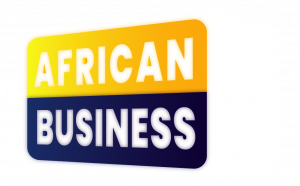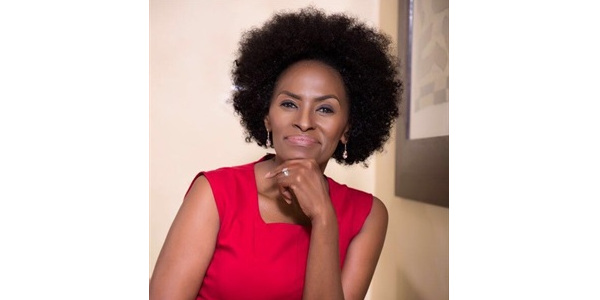Nunu Ntshingila is the regional director of Facebook Africa. She previously designed brands for the global advertising agency Ogilvy, head of her South African office. She explains what brands mean for the group’s platforms.
Facebook is a technology company that is part of everyday life, consumed more than any other on a daily basis. However, in our surveys, when people cite a brand, they refer to Coca-Cola, Nike or MTN. How do you view Facebook as a brand and how important is the brand to its teams?
Facebook’s business model puts people first, as does our brand. It is unique in the sense that its mission is to allow people to share ideas, find communities and build meaningful personal and business connections.
In a young and vibrant region like Africa, it means that we are giving people the opportunity to be the architects of a new story for the continent. This is the most powerful brand creation and we are passionate about what our platform allows.
In November 2019, we introduced a new brand image with a new company logo that distinguishes the Facebook business from the Facebook app. The new branding aims to provide more clarity.
It is a way to better communicate our ownership structure to the people and businesses that use our services. We started to include “from Facebook” in all of our apps because we think people should know which companies make the products they use.
The overall decision reflects the need for Facebook to have its own voice and story, because the issues we deal with and talk about are different from the individual application. Our brand is designed to help us better communicate our goal as a business.
What does your brand represent?
We are guided by five principles that we defend and defend deeply. The first is to “give people a voice”. We firmly believe in a world where everyone has an equal chance to be heard, where people have the power to communicate across borders and cultures, and where they can organize around causes that are important to them. It’s the world we stand for and it’s what we try to build every day.
The second is to “serve everyone”. Our business model is advertising so that we can make technology accessible to everyone.
The third is to “promote economic opportunities”. Facebook is leveling the playing field to help small businesses get started. Entrepreneurs can create a Facebook page or Instagram account and reach anyone with their idea, even without a lot of money. This was not possible before and today, we see it millions of times a day: more than 140 million companies use our platforms.
The fourth is to “bond and community”. People use our apps to get closer to their loved ones, but also to build communities and launch movements that lead to profound change.
Finally, our fifth principle is “to keep people safe and protect privacy.” We are committed to making Facebook a safe place, and to protecting privacy and personal information. We take this responsibility seriously.
You are present in most countries of the world and in Africa. Do you have to adapt the brand to different markets?
Facebook’s mission is clear: to give people the power to build a community and bring the world together. Our mission in Africa is no different than it is elsewhere in the world. Our brand image remains the same. No matter where you are, you’ll see the same Facebook – it’s important to us as a global platform.
However, Africa is made up of a variety of countries and cultures. The content we see on our platforms reflects this unique diversity. In addition, we are constantly connecting, listening and learning from all the communities on the ground, whether they are start-ups, developers or advertising agencies, to better serve them.
Many challenges remain in the region, Africa is still the least connected continent, with just over a quarter of its 1.3 billion people connected to the Internet. We know there is no quick fix for this challenge. We have a multifaceted approach.
It starts from Facebook Lite: this standalone application uses less data, saves space on the phone and works well in all network conditions, even in 2G. It deploys advanced Wi-Fi technology on the island of Gorée in Senegal. At the same time, leading African and global operators are building 2Africa, the most complete submarine cable to serve the African continent and the Middle East region.
What is Facebook’s African experience; what does it tell you about our continent, what we love, what we consume, what we aspire to?
The future of Africa is young. By 2025, as most of the world begins to age, the African region will rejuvenate to become one-quarter of the world’s most active population. Our platform reflects the youthful spirit that drives Africa.
With the rise of social media, social commerce has grown, redefining the way brands approach their customers. Some of these brands are widely online and have carried the aspirations that lead to increased consumption.
Across the region, digital platforms have been a tremendous catalyst for an inspiring transformation that has enabled the rise of African brands. For the first time, they can reach customers they did not previously have access to and sell their products locally and around the world. It’s amazing how social media has enabled African brands to thrive!
Your community is global. What is the opportunity for brands to move from local to global using Facebook, Instagram and Whatsapp?
Year after year, we see what small businesses are doing more than ever, whether it’s finding new customers, hiring employees or engaging with their communities. Small businesses become big businesses on Facebook, while they get the kind of global reach that was previously only available for larger ones.
Our platforms offer huge opportunities for brands to evolve and export their locally produced products to the world. Two-thirds of small businesses on Facebook say they have increased their sales through Facebook. This is important because when small businesses grow, they create jobs and fuel the economy.
Trust has been at the heart of Facebook’s history in recent years. Can you tell us a little bit about what trust means for Facebook and the importance of trust in branding in general?
We know we need to regain people’s trust. That’s why we’ve made improvements to better protect your privacy.
We have become more transparent in making sure that people can trust us with their information – and we know we have a deep responsibility to protect it.
In May, we appointed the first members of the Supervisory Board, implementing a new governance and content enforcement system.
This Council reflects a wide range of views and experiences and will exercise independent judgment on some of the most difficult and important content decisions.
This adds to our ongoing efforts, with the introduction since 2013 of our transparency reports, which give our community visibility on how we apply policies, respond to data requests and protect intellectual property. Protecting information comes first.
This brings us back to putting people first, around three axes. Make sure you feel comfortable sharing on our apps; have quality content – including relevant ads – that you want to interact with; and give you full control over your information.
If people don’t think Facebook is a good use of time, they won’t use it. And if they leave Facebook, our advertisers will do the same. That’s why we have to put people first. Our result is to get this right for people.
Reference: https://forbesafrique.com/rencontre-avec-nunu-ntshingila-directrice-afrique-de-facebook/































